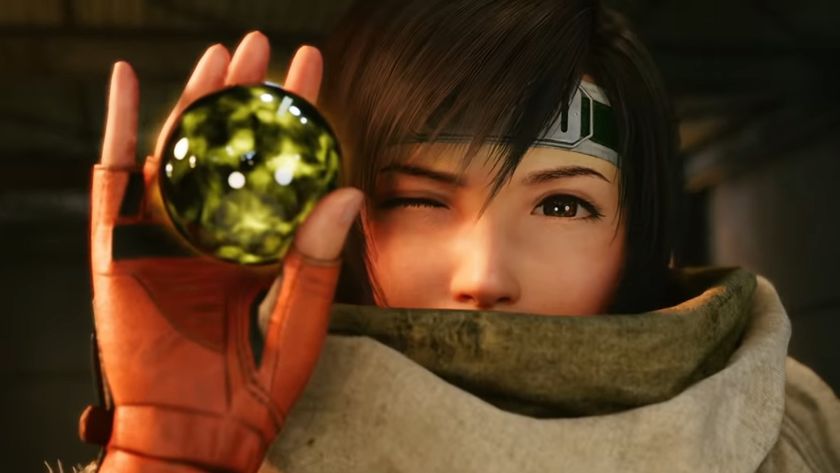Why you can trust 12DOVE
Certain filmmakers are too good to win Oscars. Too good because their vision is unblinkered, unblinking. Kubrick, for one. Peckinpah, Hitchcock, Welles, Altman, Lynch… Well, you get the idea.
David Fincher is of course one of these filmmakers, but his dismissal by the Academy is so complete he actually belongs to another subset, one consigned to a rejection more robust, more resolute.
All of the above were at least nominated for statuettes, three of them gifted honorary awards. Fincher has zero nods from six films - films that include a trio of masterpieces in Se7en, Fight Club and Zodiac.
Still, he’s at least in good company, his banished kindred including Aldrich, De Palma, Leone, Lang...
But all that’s about to change. Fincher is about to be embraced. Not because The Curious Case Of Benjamin Button is his best film, or because it’s the American classic we were all hoping for (expecting, dammit) but are the violence, desolation, obsession, rage and anarchic,
seething humour that so artfully disfigures his previous work; in comes warmth, romance, (fleeting) fulfilment, sentiment and magical realism.
A gorgeous-looking fable spun from F Scott Fitzgerald’s 1921 short story, Button flirts with whimsy, skirts schmaltz, at times teetering on the edge of a misty(-eyed) abyss but pulled back by Fincher’s cerebral disposition and meticulous technique.
Scrupulous, exacting, he’s our generation’s Kubrick - and Button is his AI, a two-parts beguiling, one-part queasy mix of heart and mind.
It’s also an epic of rare scope and scale (see, the Academy really will love it), if not the substance you might expect from a 167-minute opus that spans 90-odd years in its foregrounding of one man’s peculiar growth against that of a nation.
Naturally, the man in question is Benjamin Button, born a frail, crumple-faced OAP and aging backwards until his buckled body becomes
vital and virile - he is, after all, played by Brad Pitt - and then on into childhood, nappies, a shoebox grave.
Button’s journey takes in his raucous upbringing in a New Orleans rest home, a visit to a brothel to vigorously lose his cherry, first love with Tilda Swinton’s married sophisticate, a seesawing sea voyage, WW2 (replete with a blistering sea battle), a reunion with the father (Jason Flemyng) who abandoned him as a wheezing, arthritic baby and more, much more.
The big event in Benjamin’s life, though, is his long-awaited - and then terribly curtailed - romance with Cate Blanchett’s dancer, Daisy.
It’s here that Fincher’s overreaching saga shakes off its flaws to glide with all the elegance and beauty of a silhouetted Daisy in a moonlit gazebo - one of many poised, gleaming images that steal the breath.
All life, all love is of course ephemeral, but Benjamin and Daisy’s especially so, and Fincher communicates the rapidity of their sweet years together with a bewitching montage that perhaps even surpasses the time-lapse construction of the Transamerica Pyramid in Zodiac.
Button brims with such magic moments, such grand sequences, yet for all the aesthetic riches on display it rarely connects.
Partly it’s because Benjamin is so passive throughout, an observer who’s likeable enough (and played with admirable restraint by Pitt) but hard to root for.
But mostly it’s Fincher’s decision to shoot on digital: cold, burnished, rinsed in sepia, the foreground action frequently pasted onto pristinely rendered backdrops.
Here is a world one step removed from our own and threaded with a measured, storybook narration - befitting a fable, sure, but this is a fable that’s neither warm nor funny enough to cup the heart like a Big Fish or a Pan’s Labyrinth.
Button is instead melancholy, a teensy bit maudlin and, Fincher being Fincher, more than a little fucked up, the crisscrossing paths of our
lovers lending a whiff of paedophilia to the early scenes, a waft of Oedipal Complex to the denouement.
Yet for all these niggles, Fincher’s seventh feature is bold and brilliant enough to show up the tame ambitions of 90 per cent of US filmmakers working today.
Who else would make a film where the envelope-shredding effects are so buried in the storytelling and the enterprise and the commitment that they barely warrant a mention? Lost, quite literally, in the mix…
Jamie Graham
The Total Film team are made up of the finest minds in all of film journalism. They are: Editor Jane Crowther, Deputy Editor Matt Maytum, Reviews Ed Matthew Leyland, News Editor Jordan Farley, and Online Editor Emily Murray. Expect exclusive news, reviews, features, and more from the team behind the smarter movie magazine.

Metaphor: ReFantazio wanted to fix the JRPG grinding problem, but Atlus went too far at one point and accidentally broke the whole combat system

Final Fantasy 7 Remake and Rebirth battle director says combining everything he learned on Monster Hunter: World with Square Enix's technology and unique skills created a "chemical reaction"

"Minutes after Palworld released," Pocketpair was already getting game pitches from "some really big names" before it even set up its own publisher: "No one has money at the moment"










